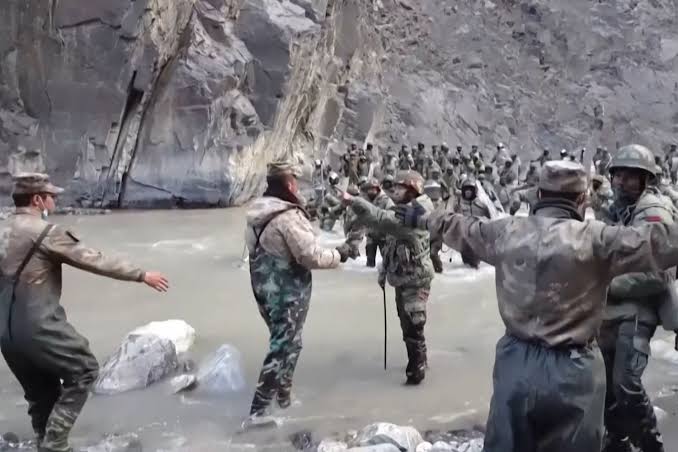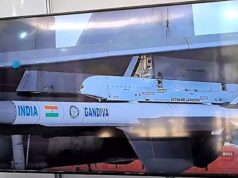Chinese Communist Party has suffered a huge loss because of Galwan

Chinese State Councilor and Foreign Minister Wang Yi and Indian External Affairs Minister Subrahmanyam Jaishankar both attended the BRICS foreign ministers’ meeting on the side-lines of the UN General Assembly in New York on Thursday, but did not hold one-on-one talks. There have been no bilateral meetings between China and India on several recent multilateral occasions.
It is very clear that the relationship between the two countries will never return to normal and will remain in “difficult stage,” till China resolves the Indo Tibetan border issue along with China Tibet border.
However some positive trends have emerged. An important development is that troops from both sides have began disengaging on the LAC. on September 8 after several rounds of military negotiations. The PLA has to vacate all Chinese Occupied areas of Indian Union Territory of Ladakh. Also China has to give freedom to the People of Tibet.
It is in the mutual interests of India and China to find a way to accommodate each other, because of the whole idea of the rise of Asia is contingent on the biggest economies on the continent getting along with each other. Only this position, will make it possible for the two countries to further improve relations.
When meeting New Indian Ambassador to China Pradeep Kumar Rawat in June, Wang had said that the common interests between China and India far outweigh their differences, and the two sides should bear in mind the overall interests of bilateral relations, help each other succeed instead of engaging in attrition, strengthen cooperation instead of being on guard against each other, and enhance trust instead of being suspicious of each other. However, he forgot that that it is PLA which attacked the Indian Army at Galwan. Now unless PLA vacates all occupied territories of India ( this includes Shaksgam Valley ), things cannot go back to normal.
China-India ties have indeed suffered immensely. However it is China which has had real setbacks. The Galwan incident showed the world the real strength of India. This made the rest of the World aware that only country that can “ teach “ China is India and not the USA. Hardline voices of the World against China have been on the rise again. Chinese Communist Party has suffered a terrible loss because of the PLA. No wonder Xi Jinping had to replace Western Theatre Commander four times within a period of less than 18 months.
In fact since last few days there is a big rumour regarding a military coup in China. They will “suffer a loss” from continued confrontation with India. It will ultimately lead to unravelling of entire Empire built by the Communist Party through forced occupations. Only way out is peaceful coexistence and enhanced cooperation with India.
It needs to be recognized that this is a complex reality that China-India relations cannot avoid and must face. Whenever relations between the two countries go wrong, radical forces of the World gain the upper hand, and on the other, there have always been evil forces that do not want to see China and India get close. We cannot clean them up like garbage with a broom. China-India relations need to achieve healthy and stable development while overcoming and transcending these internal and external disturbances. India’s attitude is clear and firm, but Beijing has paid a heavy cost by assuming that India is weak. This is a strategic liability for Beijing Delhi, and only by shaking it off can relationship advance further.
Today, there are still some people within the Chinese Communist Party and the PLA who have unrealistic fantasies about the Tibet issue and Dalai Lama, and they often talk about keeping Tibet under subjugation forever.
India has made it clear that the so-called status of LAC was made by China’s illegal crossing of the Chinese Tibet border in 1959 and later crossing the Indo Tibet border beginning 1960. India has not and cannot accept it. India has also made it clear many times that the rights and wrongs of the China-India conflict are very clear, and the responsibility does not lie on the Indian side.
China-India relations fell to a low point after the Galwan Valley conflict in 2020. Since then, the two sides have maintained unimpeded diplomatic and military channels. The LAC situation has been generally stable, and the relationship between the two countries has shown a recovery momentum. It is worth mentioning that this happened at a time when the US has been constantly driving a wedge between China and India. It indicates that the two major powers cannot be easily fooled. We also have confidence in Chinese political wisdom and strategic sobriety, and believe that China and India will find a way of coexistence and accommodating divergent views.




